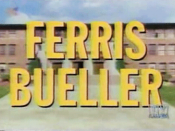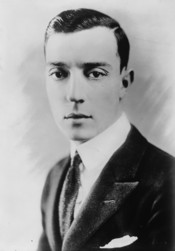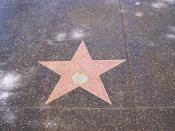Reflexivity In Film
Awareness of film as a process and not just a finished product seems to have been around
since the very beginnings of film. Buster Keaton, for example, used this idea in his films, therefore
making the audience aware of the illusion of film. His somewhat unconventional methods included
looking directly in the camera, playing with the two dimensionality of the screen, etc. However,
most Hollywood features didn't use such methods, but would rather stick to creating a complete
illusion, whose purpose was just the opposite of Keaton's, to keep the viewer completely involved
in a film, so all the work and the technology behind it stays hidden. This Hollywood style is still in
practice today in most commercial cinema, while the style associated with Keaton (which is
termed reflexive) is used rarely: in experimental films and off-beat comedies, still. One of these
comedies that use reflexivity is Ferris Bueller Day Off, a typical 80's film by content, but very
original by style.
The film's style becomes obvious early on, when as soon as the other characters are off
screen, Ferris addresses the camera. The viewer is drawn in and spoken to, so as to feel as one of
the characters and not a mere spectator. This technique which is used through out the film also
makes the audience, aware that these are not events from real life, but rather scenes form a movie,
meant to entertain, not show a 'slice of life.' The understanding of the illusion is enhanced very
early on, with the use of titles to compliment Ferris' words on 'Faking out Parents.' As he gives
his tips to the viewers, they are typed on the screen, as in an educational video, once again,
reminding the audience that this is 'just a movie,' that...


